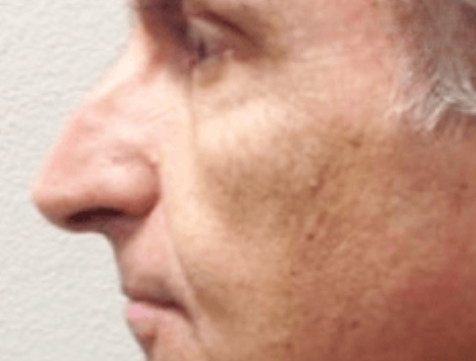However, having a strong support system in place can significantly impact your recovery and overall well-being. I am Dr. Amy Bandy, a board-certified plastic surgeon with over two decades of experience in Newport Beach, CA, and I’m here to provide you with an in-depth guide on how your family can offer unwavering support during this pivotal phase in your life. In this article, we will delve deeply into various aspects of post-surgery support to ensure your loved ones can assist you when you need it the most.
Contents
- 1 The Crucial Role of Support
- 2 Effective Communication: The Foundation of Support
- 3 Allocating Responsibilities
- 4 Creating a Comfortable Recovery Space
- 5 Fostering a Positive Atmosphere
- 6 Schedule Your Appointment Today!
- 7 Frequently Asked Questions
- 7.1 What is the typical duration of recovery after surgery?
- 7.2 When can I resume my normal activities and exercise routine after surgery?
- 7.3 What should I do if I experience complications or unusual symptoms during my recovery?
- 7.4 Are there specific dietary restrictions I should follow during my recovery?
The Crucial Role of Support
Understanding the importance of support during your post-surgery journey is fundamental. Here’s why your family’s support is indispensable:
- Emotional Well-being: Surgery can trigger a range of emotions, from fear and anxiety to relief and joy. Your family’s presence and emotional support can help you navigate these feelings with greater ease.
- Physical Assistance: Depending on the type of surgery, you may require varying degrees of help with daily activities such as dressing, bathing, and meal preparation.
- Stress Reduction: With your family members taking care of logistical details and chores, you can channel your energy into your recovery, effectively reducing stress levels.
Effective Communication: The Foundation of Support
Ensuring that your family provides the support you need begins with open and honest communication. Here’s how you can facilitate this crucial dialogue:
- Set Expectations: Sit down with your family members and discuss your concerns, fears, and expectations regarding your surgery and recovery process. Encourage them to do the same.
- Review Your Recovery Plan: Share the details of your recovery plan with your family. Discuss potential complications, the expected timeline, and any post-operative restrictions.
- Questions Are Welcome: Encourage your family to ask questions and seek clarifications from your surgeon if needed. A well-informed support team is better equipped to assist you.
Allocating Responsibilities
To ensure a smooth and organized recovery, consider assigning specific responsibilities to different family members:
- Transportation: Arrange for someone to drive you to and from medical appointments. This helps relieve the stress of travel logistics during your recovery.
- Medication Management: Designate a family member to help you keep track of your medications, ensuring you take them as prescribed.
- Meal Preparation: Having nutritious meals prepared by your family can significantly aid in the healing process and free you from the burden of cooking.
- Emotional Support: Identify a trusted family member with whom you can confide in and lean on for emotional support.
Creating a Comfortable Recovery Space
Your home environment plays a crucial role in your recovery. Consider these steps to make your recovery space as comfortable as possible:
- Bedroom Arrangement: Ensure your bedroom is well-organized with easy access to essential items, reducing the need for unnecessary movement.
- Safety Measures: Remove any potential trip hazards in your home. Consider installing handrails or non-slip mats in areas where they may be needed.
- Entertainment and Distraction: Keep books, movies, or hobbies readily available to keep your mind engaged during your downtime. Boredom can exacerbate post-surgery discomfort, so staying occupied is essential.
Fostering a Positive Atmosphere
Creating a positive and encouraging atmosphere during your recovery can significantly impact your healing process:
- Stay Positive: Encourage your family members to maintain a positive attitude. Positivity can be contagious and has been linked to faster recovery.
- Manage Visitors: While support is vital, it’s essential to manage the number of visitors during your recovery. Setting boundaries can help you conserve your energy for healing.
- Celebrate Achievements: Acknowledge and celebrate every small milestone in your recovery journey. Doing so can provide motivation and a sense of accomplishment.
Schedule Your Appointment Today!
If you are considering surgery, I encourage you to consult with a trusted board-certified plastic surgeon like myself, Dr. Amy Bandy, in Newport Beach, CA. With my extensive experience in providing personalized care, I can guide you through every step of your surgical journey. Contact my office today to schedule a consultation and learn more about your surgical options.
Frequently Asked Questions
What is the typical duration of recovery after surgery?
The recovery period varies depending on the type of surgery performed. Your surgeon will provide you with a personalized timeline during your consultation.
When can I resume my normal activities and exercise routine after surgery?
Your ability to resume normal activities and exercise will depend on the type of procedure and your individual healing process. Your surgeon will provide specific guidance.
What should I do if I experience complications or unusual symptoms during my recovery?
If you encounter any complications or unusual symptoms, it’s essential to contact your surgeon immediately. They will offer guidance on the appropriate steps to take.
Are there specific dietary restrictions I should follow during my recovery?
Your surgeon will provide you with dietary guidelines tailored to your surgery. Following these recommendations is essential for optimal healing.













